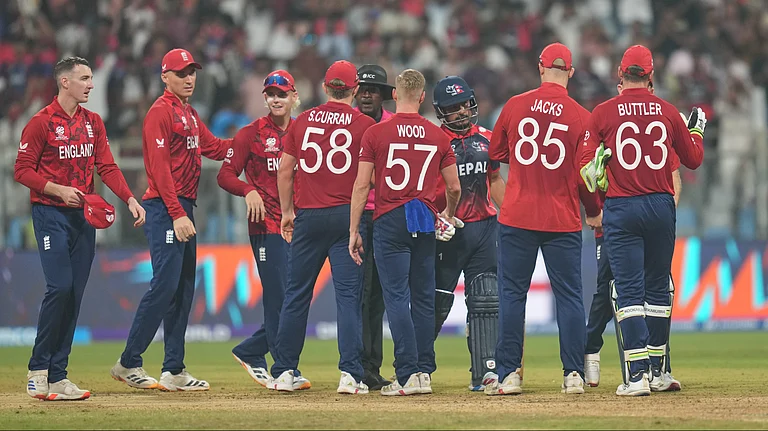Despite a considerable decline in cross-border infiltration and the number of militants in Kashmir, politics in the Valley continue to be perched at a delicate point. It’s been thirty-two months since the state of Jammu and Kashmir was dismantled, but the elections to the new assembly are nowhere in sight. Political parties like the National Conference and Peoples Democratic Party, which saw their leaders being arrested after the abrogation of Article 370 in August 2019, are yet to recover from “humiliation”. The BJP is trying to exploit the political vacuum and form a base in Kashmir. Both these political formulations suffer from a crisis. The public image of the NC and the PDP stands severely dented. It is part of the lore that a lot of Kashmiris rejoiced in the arrest of the Abdullahs and the Muftis. On the other hand, the BJP has little credibility in the Valley. In fact, it has never won an assembly seat from the region.
The Union government had abrogated Article 370 with a firm objective to create a new political culture in the Valley. However, forging new alliances and fronts is never easy, particularly in a conflict zone like Kashmir that witnesses the multiple and conflicting claims of various communities.
The BJP has identified two broad groups — less-educated, unemployed youth who are being lured with the promise of jobs, and tribes like Gujjars that were largely disregarded by the Kashmiris. They were even considered second-class citizens, with the word Gujjar often seen as abuse in Kashmir. They can be the prime beneficiaries after the arrival of the Forest Rights Act and the SC/ST Act post-abrogation. Around 99.3 per cent population of Gujjars and Bakarwals practise Islam, yet such is their alienation from other Kashmiri Muslims that they once even demanded a linguistic minority status. The BJP is trying to exploit the divide between the two communities.
The Gujjar factor
Last fortnight, retired colonel Dev Anand extensively toured several districts of the Kashmir Valley to strengthen “the nationalist sentiment” among his community. A native of Rajasthan, Dev Anand is an officer-bearer of International Gujjar Mahasabha. He organised camps for the community and held a special event in Ganderbal on March 22 to mark International Gujjar Day. As per the 2011 Census, Scheduled Tribes (STs) constitute 11.9 per cent of Jammu and Kashmir’s population, with Gujjars constituting 7.8 per cent of J&K’s population and 65.67 per cent of the total tribal population. Bakarwals, the second-largest tribe, comprise 7.58 per cent of the tribal population.

Compared to dominant Kashmiri Muslims, Gujjars have fewer complaints against the Union government’s decision to snatch away the state’s autonomy. “There is a fault line between Gujjars and Kashmiris. We don’t usually support militancy or azadi, which is driven by Kashmiris,” a Gujjar student at the Government Degree College, Dooru, Shahabad, Anantnag, told me in December 2019. BJP spokesperson Altaf Thakur called the tribes “nationalists” whom the party will use for “nation-building”.
The Union government wooed the community by reserving seats for the STs for the block development council elections held in J&K in October 2019, the first instance when electoral seats were reserved for the tribes in Kashmir.
In a programme held at Bandipora last month, Dev Anand thanked the Union government for implementing the ST reservation, which won the tribes over 40 seats in the local elections. Praising the government for implementing the FRA, the community leaders also passed a resolution that Gujjars and Bakerwals, who had been living a nomadic life for centuries, should be given permanent settlement.
Difficult politics
However, forming a political front is a tough political exercise involving bitter negotiations. Greater outreach to the Gujjar tribe may also find the BJP losing the support of dominant Kashmiri Muslims. In 2019 December, I met some young residents of the Ganderbal district who had recently joined the BJP and were excited about beginning a new career. Twenty-seven months later, they have a complaint. The Kangan constituency in which they have been working for the last two years is proposed to be an ST seat under the new delimitation formula. If the delimitation proposal is accepted, the BJP will be fielding a Gujjar or Bakerwal from the seat. “If it happens, why would we work for the BJP?” the young men told Outlook.
In other words, the party may again draw a zilch in the elections in the Valley as and when the dates are announced. A new party, Apni Party, was formed in 2020 by former members of the Congress, the NC and the PDP. The party, which is often perceived to be a front of the BJP, opposes the dynasty rule of the three parties, but it has gained little space so far.

The challenge would be no lesser for the existing parties. At National Conference’s Srinagar office last month, party leaders were furious as they spoke about their prospects. “Earlier, people often saw us as Indian agents, occupiers. It will be very difficult to convince people and do politics now,” said a party spokesperson.
The Centre may crush the dissenting voices by force, but its real test would be the assembly elections in the Valley. The question, at present, is: for how long can the Centre postpone the elections?


























